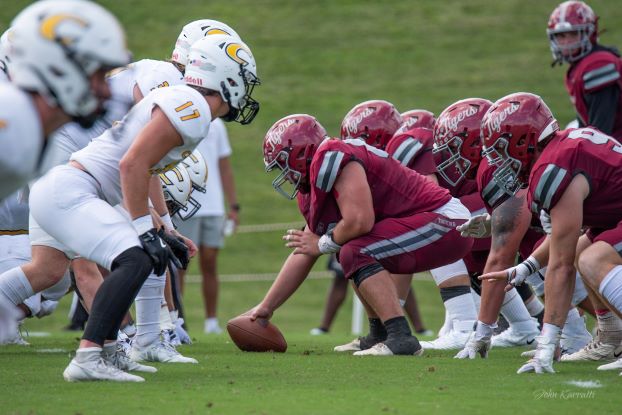Trying to understand school reopening plans
Published 12:43 pm Monday, July 20, 2020
|
Getting your Trinity Audio player ready...
|
Let me begin with this statement — we all should be cautious during this period of COVID-19. We should all wear masks when we are in locations in which we might interact with those who might have the virus. However, some consistency and logic should be incorporated in, not only when we wear a mask, but also where we go and what we do.
Some felt last week that I was being callous for simply asking questions about when and how we should open our schools. I ask those questions and these in this week’s column because I do not know the best answer other than one size does not fit all, and Gov. Ralph Northam has no better grasp of the answer for each locality than those in each community.
Since last week’s column, some localities have announced that they wouldn’t have any face-to-face classes until next year. Others have proceeded to talk about one group of students coming on Monday and Tuesday and another group coming on Wednesday and Thursday, saving Friday for “deep cleaning” and on-line education three days a week.
Trending
The deep cleaning policy seems strange to me because we have been told about how long the virus can survive on surfaces. If we have been told accurately by the CDC that viruses will die after eight to 10 hours, and students leave Thursday afternoon, won’t the virus die by school opening on Monday? Likewise, if students bring the virus to school, won’t the desks be sickly an hour after arrival at school?
I find it interesting that the school systems that were first to discuss no school this fall are those where the unions are most powerful. They seem to have less concern about the students than they do about the teachers and other staff. Being the husband of a retired teacher, I certainly don’t want anyone at the schools to get sick. Yet, we have deemed some workers in our society as necessary workers. Are those school systems declaring the education of our students is unnecessary?
For months now we have taken the position that some jobs are needed in our society and, therefore, people are expected to be at work. Where would we be today if the employees at big box stores weren’t restocking the toilet paper? Likewise, if our grocery stores had no cashiers or anyone restocking the bread and eggs, would we be able to cope? If the liquor stores weren’t open for alcohol sales, would the state be having record sales volume?
JOBS AND FAMILY
During the first couple of months of the virus, many employees were laid off, others could work from home. Therefore, when the schools closed in March, parents were able to tend to their families. Now, however, as businesses are starting to re-open and unemployment benefits are running out, what happens to our children if there is no school or only a couple of days a week? I will tell you that all will suffer. Businesses will not be able to function properly, families will be challenged with either having to find rare childcare or, if one parent has to stay home, the family might well suffer financial disaster.
I will repeat my concern for the teachers and staff at our schools, but they are not the only ones that might suffer health risks. If the fear is that the students will spread the virus around at the school, is it not also true that if the kids are in daycare, we should be just as concerned about those providing that service? The same is true if grandparents or other sitters care for the kids. They are usually older and, therefore, more likely to be negatively impacted.
Trending
Several studies suggest, but don’t prove, that children are less likely to become infected than adults and more likely to have only mild symptoms. In our region, fewer than 1 percent have tested positive and the ones who have died have been the weakest of our elderly. That does not mean we should ignore the risks, but we should weigh the risks for younger children’s education, socialization and students who will not be getting the special services our schools provide.
FRANK RUFF JR. serves as the 15th District senator in Virginia. He can be reached at Sen. Ruff@verizon.net, (434) 374-5129 or P.O. Box 332, Clarksville, VA 23927.





